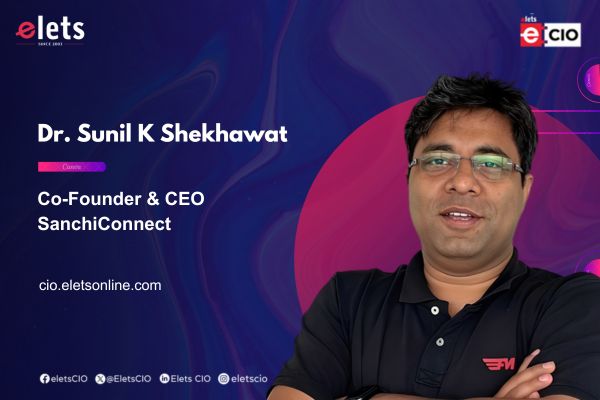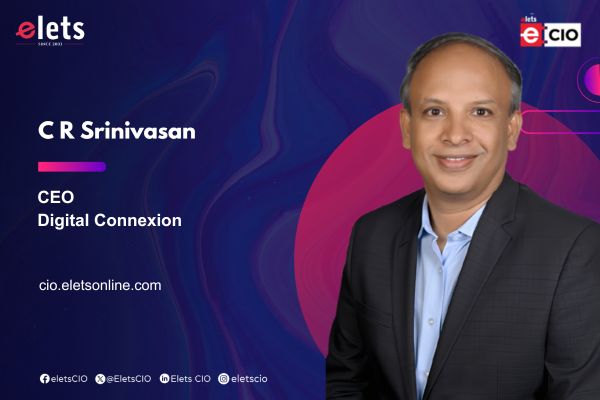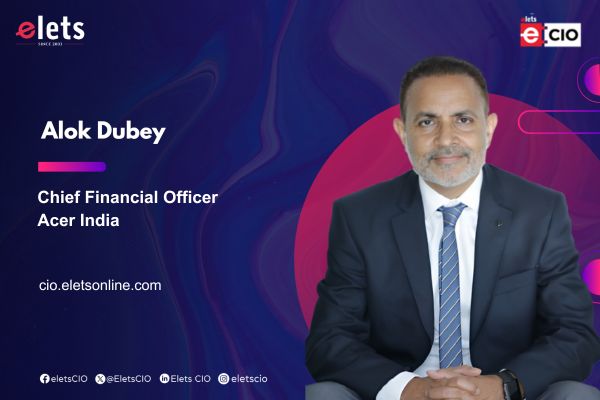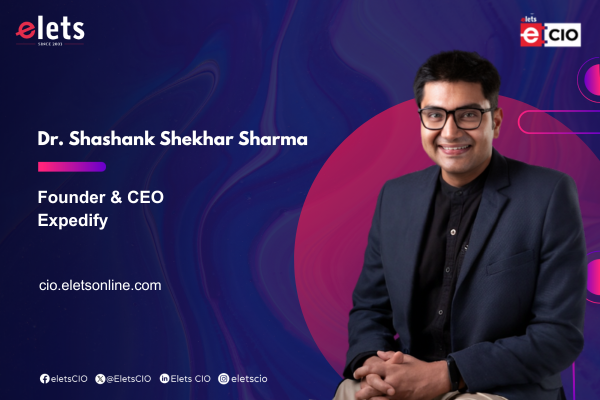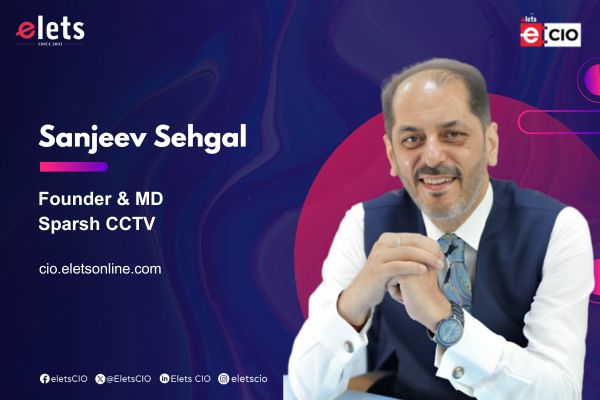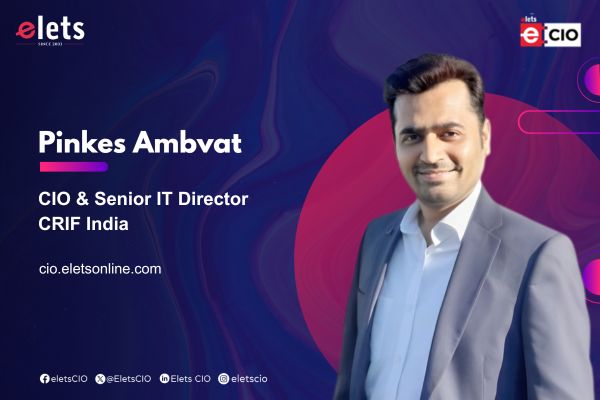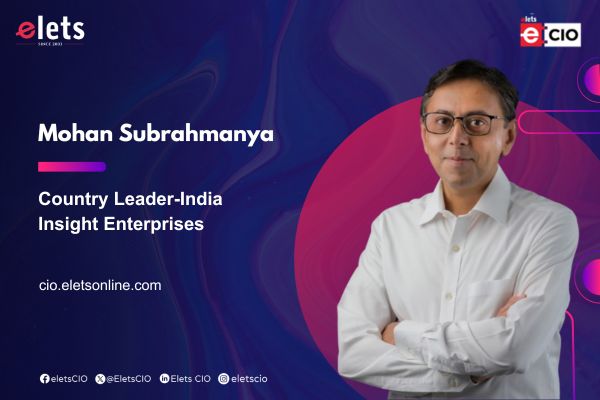
Our partnerships with the three hyperscalers—Microsoft, AWS, and Google—are instrumental in helping us stay at the forefront of AI and future tech. While they’re not the only players in the space, these three are certainly bellwethers for the industry. Mohan Subrahmanya, Country Leader-India, Insight Enterprises shares with Kaanchi Chawla of Elets News Network (ENN). Edited excerpts:
The Indian public cloud service market is projected to reach 25.5 billion by 2028. So with a compound annual growth rate of 24.3 per cent. So, how is your company positioning itself to capitalise on the growth and what unique solutions are you offering to meet their increasing demand for cloud services?
Insight India was predominantly set up as a captive centre. We were focused on delivering services to North America, EMEA (Europe, Middle East, and Africa), and Asia-Pacific customers. The Indian economy is poised to become the third-largest in the world in the next two to three years, overtaking Japan and Germany, respectively, so it makes sense that we’re seeing an increase in growth in cloud. We follow a multi-cloud strategy. It’s hard to believe, but it was almost 20 years ago that Amazon started its cloud service—two decades have gone by so quickly—and Microsoft and Google have caught up in the last 15–20 years. Our strategy, therefore, is multi-cloud focused. We are one of Microsoft’s top partners globally, probably the largest partner for Google, and we are also making significant inroads with AWS.
Different clients are at varying levels of maturity in their cloud adoption journey. Some have just scratched the surface, while others are leveraging more cloud-native capabilities. Our strategy is to support clients based on the market segment they belong to, and the solutions are tailored accordingly, whether enterprise or mid-market. We also have our solutions. For example, Insight Lens for AI is something we use primarily for data analytics and leveraging AI from that standpoint. That’s just one example—we have multiple use cases across industries such as healthcare, manufacturing, banking, telecom, transportation, and more.
We believe in ensuring that clients have the right mix of cloud capabilities based on their specific needs, workloads, and overall business context. That, essentially, is our strategy. We will continue to make investments in India to further develop it as a central hub for innovation for Insight as a group globally.
As companies worldwide emphasise eco-friendly tech and waste reduction, what steps is your organisation taking to promote ESD and clean technology? Can you show some specific initiatives or projects that highlight your commitment to sustainability?
I think with the advent of AI, sustainability has become a more important topic. This is because the amount of energy consumed, for instance, when you prompt ChatGPT and it gives you an answer, is far greater than that of a typical web search. The resources, electricity, and other infrastructure required to generate such responses are significantly higher. Therefore, sustainability has to be balanced with the rise of AI.
We are addressing this in multiple ways. For example, hybrid work is a very important mantra for us. We also equip all our employees with intelligent AI devices that are optimised for energy usage. This ensures that, at an individual level, there is conscious and efficient use of power. Additionally, we use AI internally to monitor our office buildings and explore ways to reduce the carbon footprint associated with our infrastructure. These are just a few of the many initiatives we’ve undertaken to align sustainability with technological advancement.
A recent survey suggests that generative AI could boost India’s IT industry productivity by up to 45 per cent over the next five years. How is your organisation leveraging Gen AI to enhance productivity, and what specific areas do you foresee benefiting the most from this technology?
I think, like with any new technology, there’s going to be a paradigm shift. We are ensuring that all our employees, whom we refer to as teammates, are enabled with generative AI technology. This could be in areas such as software development, using tools like GitHub Copilot, or productivity enhancement, using Microsoft 365 Copilot.
You’re absolutely right in observing that the current productivity gains — often cited as 45 to 50 per cent — are just the tip of the iceberg. In fact, the real impact might be closer to 70 to 80 per cent in specific areas. And it’s not just limited to traditional domains like software development or cloud infrastructure management. Our HR, finance, and marketing teams are also exploring how generative AI can be leveraged in their respective functions.
Generative AI will eventually impact every industry sector and every department within organisations. In that spirit, we’ve built several internal solutions to ensure that we are applying the very capabilities we recommend to our customers. We’re doing extensive work internally, and some of these solutions — such as those for enterprise knowledge management — are already being rolled out to clients. This is especially relevant as many large organisations have accumulated vast amounts of data over decades, and AI can play a key role in unlocking its value.
With the rise in AI adoption, cybersecurity threats have also become more sophisticated. How is Insight India integrating AI into its cybersecurity measures to proactively detect and mitigate potential threats?
I believe that with any technology, there are both positives and negatives. Just as nuclear technology can be used to generate electricity—or, conversely, to cause destruction—AI too brings its own set of pros and cons. One area that certainly requires constant attention is security. Security is a standalone, independent practice for us and remains a key focus area. We work with several customers who have faced incidents such as ransomware attacks or security breaches that have brought down their environments. In such cases, we provide consulting, advisory support, and even manage their security infrastructure.
A crucial part of this is ensuring that all our teammates are up to date with the latest security protocols, processes, and best practices. We mandate regular compliance training—not just as an annual formality, but as an ingrained part of our organisational culture. Vigilance is essential at all times. Recent reports have indicated that 59 per cent of Indian enterprises have actively deployed AI—the highest among the countries surveyed. This underscores the importance of having strong security frameworks in place as AI adoption continues to grow.
Also Read :- Revolutionising Security with “Made in India” Innovation
How have you contributed to this rapid adoption, and what strategies have been most effective in integrating AI into traditional business models?
As I mentioned earlier, we haven’t gone to market directly in India. Instead, we work extensively with captive units—or what are known as Global Capability Centres (GCCs)—which are headquartered in countries like the US, UK, Australia, and others. We engage with several of these customers and support them across multiple use cases.
For instance, in the healthcare sector, we are building solutions to help hospitals manage bed availability for incoming patients. Another example, though not specific to India, is around mining patient data. We’re developing AI-driven systems that generate reports to assist doctors in quickly and accurately diagnosing patients, thus saving time and improving treatment outcomes.
We’re also supporting B2C-focused clients who need robust systems for direct consumer engagement. In these cases, we work on improving the overall customer experience through seamless interactions, looking at call centre integrations and optimising every touchpoint between the consumer and our clients.
The use cases we’re working on span both industry-specific and cross-functional areas. For example, in supply chain management, we’re integrating AI to address the significant wastage that can occur. At the same time, we’re applying AI in departments like HR and finance, transforming the role of HR teams from simply responding to routine queries about policies to acting as strategic partners who can focus on solving real employee challenges.
By offloading basic queries to AI agents, HR professionals are empowered to engage in more meaningful, high-impact conversations. The same concept applies to finance and other departments as well.
Considering the rapid technological advancements and market projections, what are your key business strategies for 2025 and beyond, and how do you plan to stay ahead of emerging tech trends and continue delivering value to your clients?
Our partnerships with the three hyperscalers—Microsoft, AWS, and Google—are instrumental in helping us stay at the forefront of AI and future tech. While they’re not the only players in the space, these three are certainly bellwethers for the industry. These strong partnerships allow us to continuously upskill our people through a rigorous and structured learning and development program that’s closely aligned with these organisations.
Our teammates undergo upskilling not just annually but continuously—weekly, even daily in some cases. That’s one of the big advantages of having such robust relationships with companies that are themselves innovating at a rapid pace. And you’re right—the speed at which technology is evolving today is hard to keep up with. But we’ve structured our organisation in a way that supports that evolution.
We have dedicated, specialised focus areas: AI, data, security, and cloud infrastructure, each operate independently. This allows our teams to stay laser-focused and up to date within their specific domains. At the same time, we strongly encourage cross-skilling. If someone wants to move from, say, cloud infrastructure to AI, the learning and development infrastructure is there to support that transition.
These are just some of the ways we’re ensuring our people—and by extension, our clients—stay ahead of the curve in a fast-changing tech landscape. Thank you once again for the opportunity to share these insights.
Be a part of Elets Collaborative Initiatives. Join Us for Upcoming Events and explore business opportunities. Like us on Facebook , connect with us on LinkedIn and follow us on Twitter.
"Exciting news! Elets technomedia is now on WhatsApp Channels Subscribe today by clicking the link and stay updated with the latest insights!" Click here!




